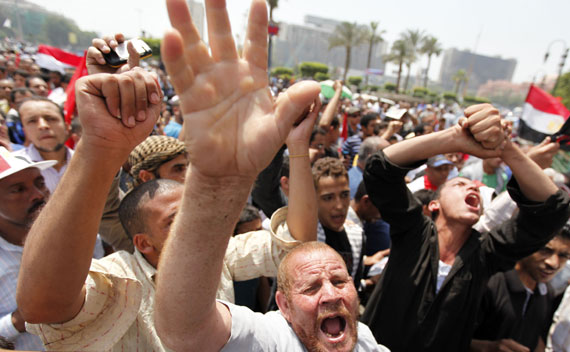The Trials and Tribulations of Hosni Mubarak
More on:

Yesterday afternoon came news that former Egyptian President Hosni Mubarak will be put on trial for the deaths of protesters and for corruption. Clearly, the Supreme Council of the Armed Forces is feeling the pressure from revolutionary groups who, in response to rumors that the officers were preparing to pardon Mubarak, called for a second revolution on May 27. The last thing the military wants now is a return of tens and perhaps hundreds of thousands of people to Tahrir Square. There are obviously many Egyptians who believe that the country cannot move forward until Mubarak and his associates are held accountable for the crimes they committed over the last three decades. This is perfectly understandable. Those Egyptians who advocate for a Mubarak trial hope that it will deter future abuses of power. Perhaps it will, but Egypt needs more than a trial of its former dictator to prevent a reversion to “rule by law” (as opposed to “rule of law”). The unfortunate thing for Egypt and Egyptians is that while it settles the natural and legitimate desire for accountability (and let’s face it, revenge), trying Mubarak is perhaps backward looking at a time when building a new, more decent political order is paramount. I also wonder whether hauling Mubarak before a court could destabilize the country further and encourage counterrevolutionary forces to seek retribution.
A truth and reconciliation commission would have accomplished the goal of holding Mubarak accountable and tarnishing him and his family forever, without the risks associated with a trial. It’s too late now. Fingers crossed that this will help more than it will hurt.
More on:
 Online Store
Online Store